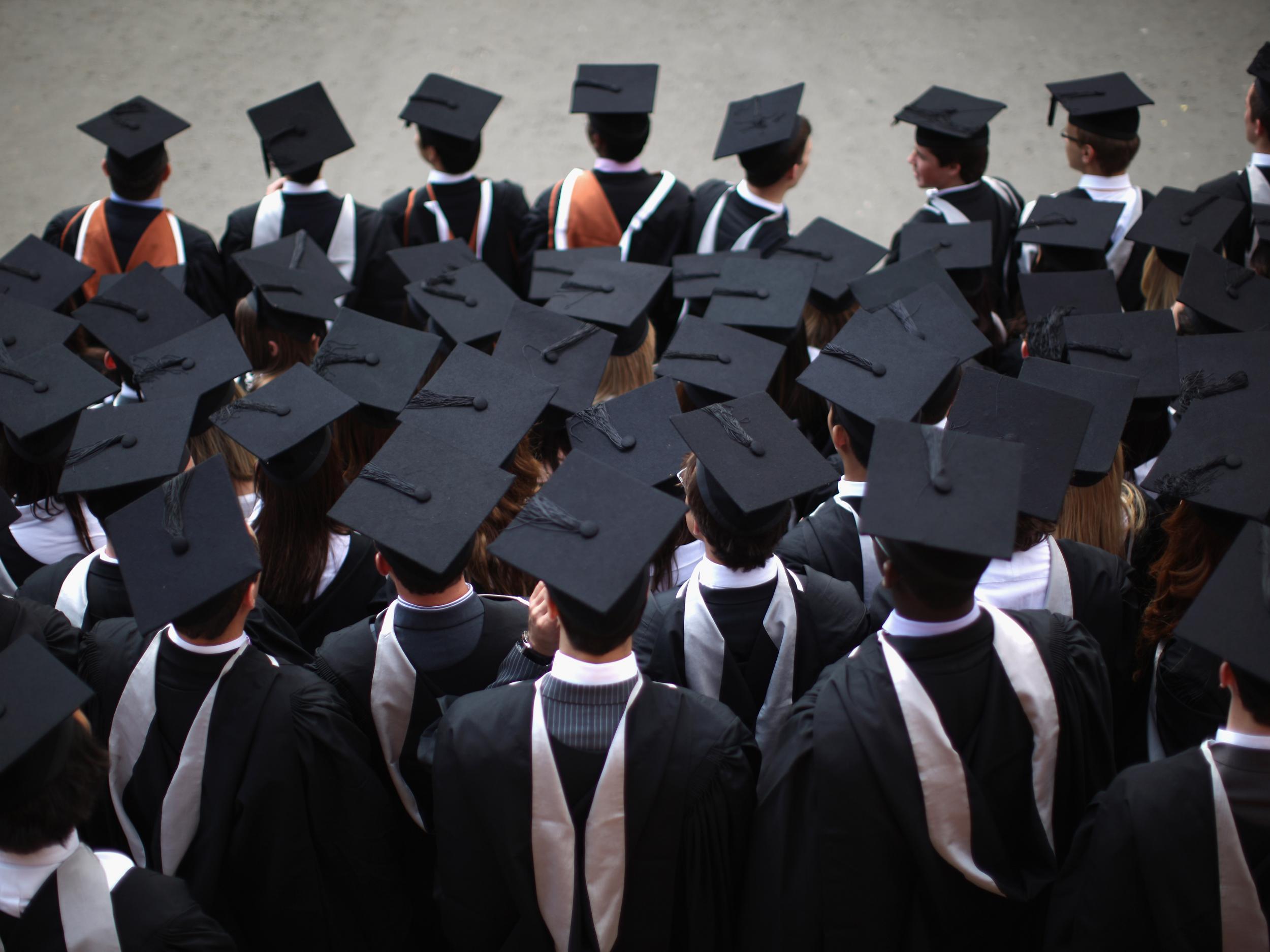Richest students paying least for university, research finds
'Wealthy students can focus on their studies while poorer students work to make ends meet'

Your support helps us to tell the story
From reproductive rights to climate change to Big Tech, The Independent is on the ground when the story is developing. Whether it's investigating the financials of Elon Musk's pro-Trump PAC or producing our latest documentary, 'The A Word', which shines a light on the American women fighting for reproductive rights, we know how important it is to parse out the facts from the messaging.
At such a critical moment in US history, we need reporters on the ground. Your donation allows us to keep sending journalists to speak to both sides of the story.
The Independent is trusted by Americans across the entire political spectrum. And unlike many other quality news outlets, we choose not to lock Americans out of our reporting and analysis with paywalls. We believe quality journalism should be available to everyone, paid for by those who can afford it.
Your support makes all the difference.One in ten students in England are rich enough to pay their university fees in one go to avoid racking up large debts and paying "sky-high" interest rates, new research has shown.
Approximately 110,000 undergraduates are "escaping" the student fee system by paying for university upfront thanks to a "get-out-of-jail-free card" from their wealthy families, a think tank report reveals.
The study, by the Intergenerational Foundation (IF), also found that the proportion of students who self-fund is higher on average at the universities in the Russell Group – the most elite UK institutions.
Universities with higher proportions of self-funding students are often those with more students from private school – whose parents might still be opting to pay for their fees, researchers say.
Angus Hanton, co-founder of the think tank, said its analysis "makes a mockery of claims that the current system is progressive, since the wealthiest kids are not even in the system".
He called on the government to reduce the interest rates charged while at university, cut the tuition fees and re-introduce maintenance grants to ensure all students are treated “fairly”.
The report comes as the government's post-18 education and funding review, the Augur Review, is due to publish its recommendations.
Among the 1.08m UK-domiciled undergraduate students pursuing first degrees in 2016-17, some 10.21 per cent were self-funding, the think tank found.
Paying up front means the wealthiest students avoid having to pay around £6,000 of interest while still at university.
Meanwhile, students who borrow are currently charged 6.3 per cent in interest, more than four times the government's borrowing rate of 1.5 per cent.
Shakira Martin, president of the National Union of Students (NUS), said: “While wealthy students can avoid accruing debt and the high interest which comes with student loans, too many students from low-income families grapple with a cost of living crisis and unaffordable housing.
"Wealthy students can focus on their studies, while too many poorer students work long hours to make ends meet."
A quarter of the 24 Russell Group universities in the UK had self-funding levels for full-time first degrees at more than twice the national average.
They included King's College London with 20 per cent, Cambridge and Oxford with 16 per cent each, University College London with 14.5 per cent and LSE with 14 per cent.
Rakib Ehsan, the report's author, said: “Wealthier families have realised that they can give their children a get-out-of-jail-free card by helping them to escape sky-high interest rates and a 30-year loan that could be sold off to the private sector in the future."
With additional reporting by PA
Join our commenting forum
Join thought-provoking conversations, follow other Independent readers and see their replies
Comments